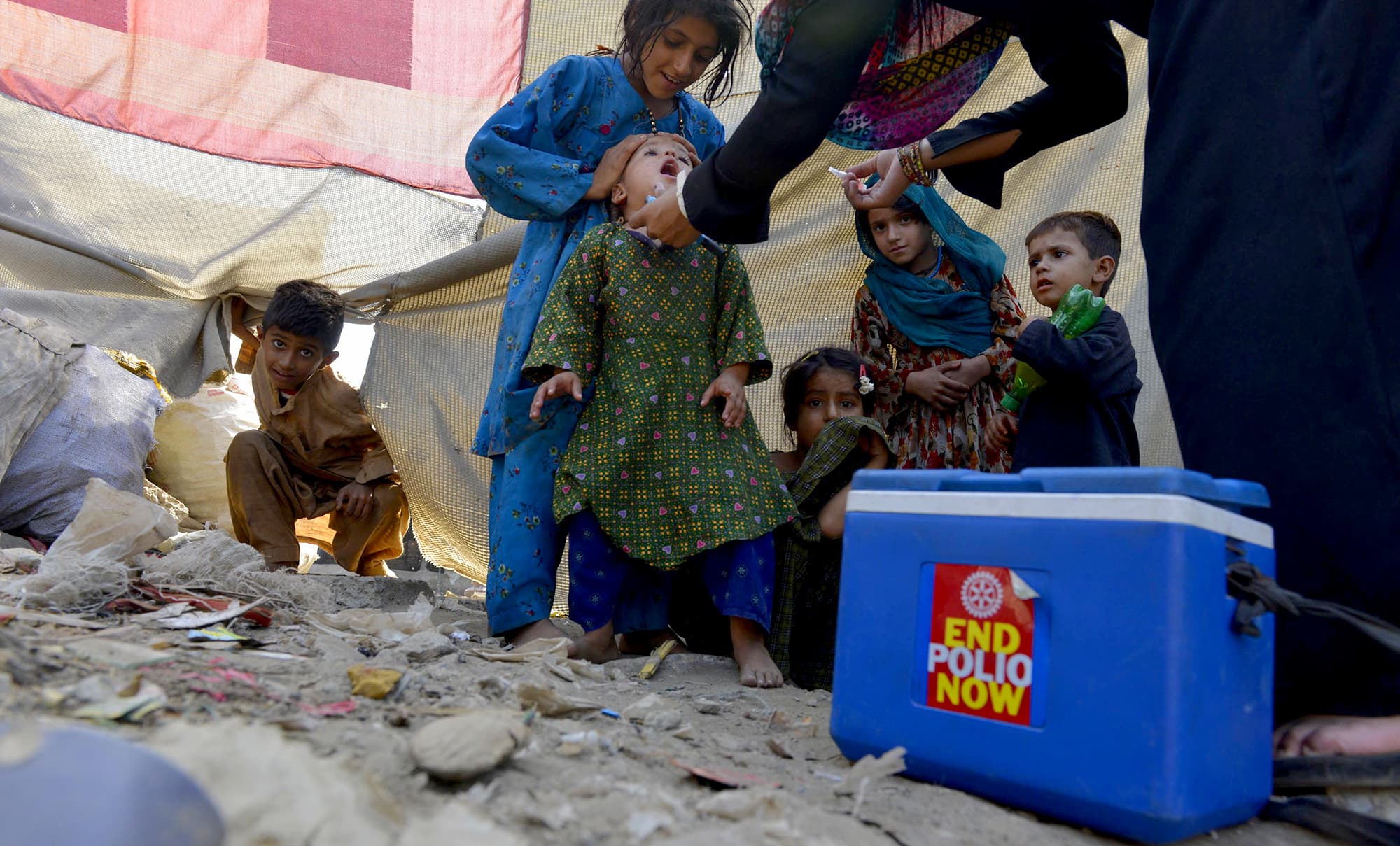The dream of a polio-free drew a little closer to the realization last August when WHO and UNICEF felicitated Nigeria on being certified free from wild poliovirus. Only two countries remained to which wild poliovirus is still endemic: Pakistan and Afghanistan.
In 2018, a total of 12 poliovirus cases were reported in Pakistan. There was a spike in 2019 resulting in 147 reported polio cases although the disease burden decreased again in 2020 with 84 reported cases.
Tellingly, two of the three Pakistani regions still harbouring wild poliovirus border with Afghanistan: Quetta block and Khyber-Peshawar block. The third problematic area – Karachi – most likely gets the infection from the former two.
The success of Nigeria is particularly relevant because, as well as being a low-middle income country like Pakistan, it suffers from many of the same debilitating problems that have kept Pakistan from getting rid of poliovirus: Conflict, low literacy, religious obscurantism, and vaccine hesitancy.
There is a need for research to ascertain the exact issue or issues that keep Pakistan from achieving polio-free status. Past scholar- ship has pointed out poor management and operational deficits, negative propaganda against vaccination and vaccine hesitancy, conflict and militancy preventing vaccine coverage as key areas of concern.
The National Emergency Action Plan for Polio Eradication (NEAP) reported that owing to deficits in the quality and coverage of the polio eradication campaign led to a large number of children remained unvaccinated in 2014.
The deficits identified included suboptimal surveillance of AFP (acute flaccid paralysis), delayed payments to staff, poor accountability and management practices and the widespread disruption of Supplementary Immunisation Activities in polio-endemic regions due to attacks on vaccination teams and their security escorts.
In the past, a concerted propaganda campaign by militants operating from the Pakistan-Afghanistan border region greatly undermined Pakistan’s polio eradication effort. Supported by some religious elements, the campaign spun a narrative linking vaccination to a Western plot to sterilise Muslims and painted vaccinators as foreign spies.
This kind of propaganda peaked in the immediate aftermath of the revelations that the CIA had run a fake vaccination campaign in Abbottabad to trace Osama bin Laden. Its impact was felt most sharply in the Khyber-Pakhtunkhwa province and then then FATA (Federally Administered Tribal Areas, since merged with the KP) – already the area of the highest vaccine refusal rates in the country and turning up the most poliomyelitis cases.
The irresponsible move exposed vaccinators operating in conflict-affected parts of the country to heightened hostility, partly because they were perceived to be following a Western agenda. The militants operating in those areas announced a ban on polio vaccination and field teams administering the OPV were targeted with terrorist attacks, leading to many vaccinators and polio team members being killed and injured.
The United States deservedly attracted flak from far and near following the revelation. Pakistan’s polio vaccination programme already had enough problems to contend with and this new variable only made the task harder by that much. Experts say the distrust sowed by that irresponsible move will continue to exact a price in terms of vaccination refusals for a long time to come.
As of now, the problem has been further complicated by the raging COVID-19 pandemic and the lockdowns to check its progress. In 2020, when the polio drive was suspended for four months because of a COVID-19 lockdown, 40 million children missed out on crucial poliovirus vaccination.
But challenges cannot be allowed to be justifications for failure or inaction. Pakistan has to walk the walk come hail or thunder. During a recent Senate session, Senator Quratulain Marri grilled the federal government and stated that “We should call polio victims to the parliament to tell how badly we have failed them”.
In Feb 2020, the Islamic Development Bank signed a Supple- mental Agreement amending the Master Murabaha Agreement with the Government of Pakistan offering financial assistance worth UDD 60 million in order to provide support to contain the contagious and critical poliovirus endemic.
“Pakistan has benefitted from a long-standing understanding and cooperation with the Islamic Development Bank”, says Dr Rana Muhammad Safdar, Director General Health and Coordinator of the National Emergency Operations Centre, Polio Eradication Initiative.
In spite of everything, Pakistan has to slog on and get there sooner rather than later – and original research into the origin and nature of the problem will be the first step of the journey. We must realise that our situation is unique with a large population carrying wild poliovirus living astride the Pak-Afghan border.
Could it be that none of the coverage techniques perfected by the global polio eradication initiative works adequately for a population living astride an international border? Could it be that the deep-seated, decades-old conflict in Afghanistan is the culprit? We have to take a hard look and know for certain.
Only then can we realise the dream of a polio-free Pakistan and a polio-free world.










